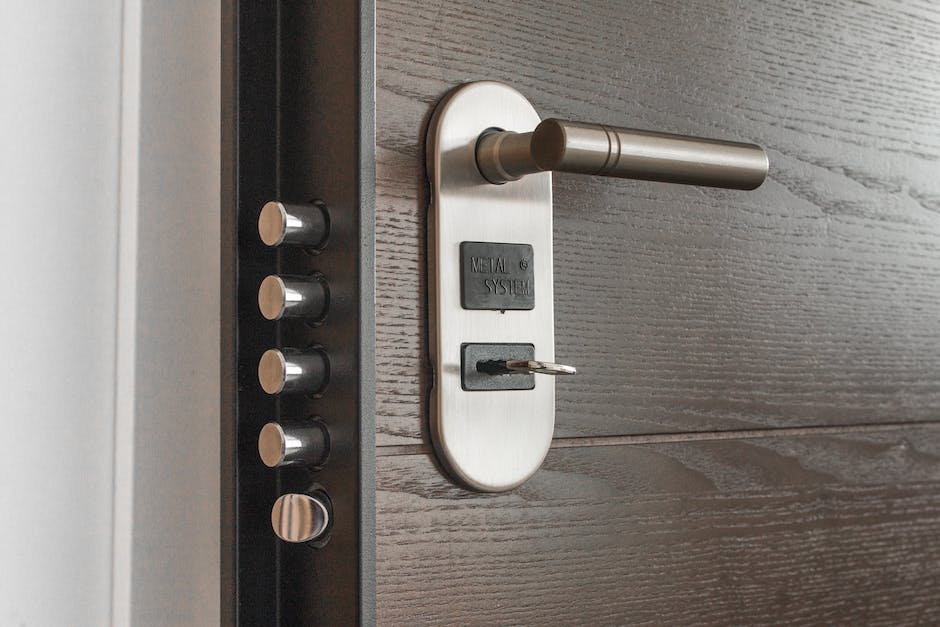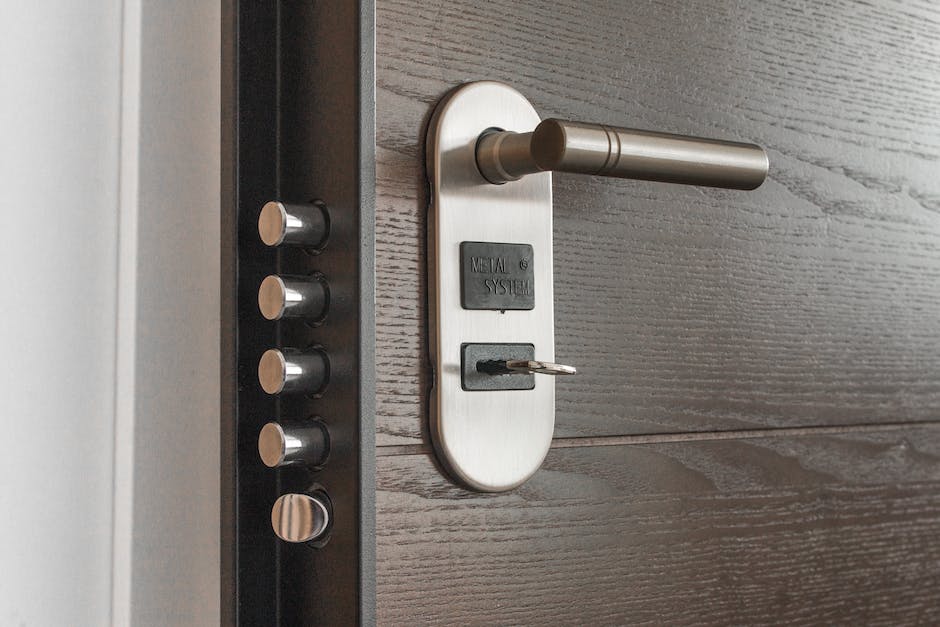In the real estate scene of Maryland, understanding the intricate dynamics of security deposit withholding can ensure a smooth relationship between tenants and landlords. Security deposits are designed to safeguard landlords against potential grievances while being a guarantee for tenants that the property they’re moving into is maintained to a certain standard. This discussion offers a comprehensive view of the Maryland Security Deposit Laws, exploring common reasons landlords might withhold these deposits, and how to contest such withholdings when they seem unjust. It further presents beneficial guidance for both parties involved to avoid such predicaments, thus ensuring a harmonious rental experience.
Maryland Security Deposit Laws
Maryland Security Deposit Laws
In Maryland, landlords can ask for a security deposit to ensure that they are protected if the tenant fails to pay rent, causes damage beyond normal wear and tear, or breaches the terms of the lease agreement. The maximum security deposit a landlord can ask for is the equivalent of two months’ rent.
Security Deposit Receipt
Upon receiving a security deposit from a tenant, landlords in Maryland are required to provide a receipt. This receipt should include a written description of the rental property’s current condition. The landlord also has the obligation to inform the tenant in writing about their right to be present during the final inspection of the property when the tenant decides to move out.
Handling of Security Deposits
Landlords in Maryland must deposit security deposits of $50 or more in an interest-bearing bank account. The landlord is required to pay the tenant simple interest annually. The interest rate, set by law every year, is calculated based on the Federal Reserve discount rate as of January 1st plus 1.5 percent. However, if the tenant breaches the terms of the lease and is evicted before they’ve lived in the property for six months, no interest is owed.
Security Deposit Returns
The landlord has 45 days from the end date of the lease to return the security deposit, along with any accrued interest, to the tenant. In cases where some or all of the security deposit is used for purposes such as unpaid rent or to repair damages, the landlord must provide an itemized list of the deductions.
Exemptions
Certain situations may exempt landlords from adhering to Maryland’s security deposit laws. These include situations where the rental property is a single-family rental unit, which the landlord, who is an individual, owns and manages without the use of a licensed property manager, and owns three or fewer single-family rental units.
Withholding of Security Deposit
Landlords in Maryland can withhold security deposits for non-payment of rent, to cover damages beyond ordinary wear and tear, or if the tenant has breached the terms of the lease agreement. However, the landlord may not withhold part of the security deposit for conditions due to normal wear and tear, or conditions that existed at the beginning of the tenancy, unless they were documented in the initial move-in inspection report.
Disputes Over Security Deposits
If the tenant disagrees with any deductions made from the security deposit, they may take the landlord to Small Claims Court. If the court finds that the landlord wrongfully withheld the deposit, the tenant may be awarded up to three times the amount withheld, plus reasonable attorney’s fees.
Understanding both the rights and responsibilities tied to security deposits in Maryland is crucial for both landlords and tenants. A comprehensive knowledge of Maryland’s security deposit laws will ensure that all practices relating to withholding a security deposit are carried out in a legal and fair manner.

Common Reasons for Withholding Security Deposit
Maryland’s Stance on Landlords Withholding Security Deposits
Certain circumstances give landlords in Maryland the legal right to withhold security deposits. One of these reasons principally includes covering the costs of any damages that surpass regular wear and tear. If, once the tenant vacates, the property’s condition closely mirrors the state it was in upon their move-in ― barring the expected wear and tear ― the tenant is entitled to a full return of their security deposit. Nonetheless, should damages such as extensive carpet staining, broken appliances, or wall damage be apparent, landlords can rightfully deduct the repair costs from the security deposit.
Common Reasons for Withholding Security Deposits in Maryland
While the specifics are subject to the terms of the rental agreement, common damages or violations might include extensive damage to the property, unpaid rent, or breach of lease terms. Landlords can also use the security deposit to cover the cost of cleaning the unit if the tenant fails to leave it in a clean condition, as per the terms of the lease. Other potential reasons could include improper or lack of notice when moving out, or abandoned personal property that required disposal by the landlord.
Landlord’s Obligation To Provide an Itemized List of Deductions
To withhold any part of the deposit, landlords in Maryland must provide an itemized list of deductions within 45 days of the tenant’s move out. This list should detail the extent of damages and the cost of repairs. If a landlord fails to return the deposit or a list of deductions within the required timeframe, the tenant could be entitled to up to three times the deposit amount in damages.
Importance of the Pre-Rental Inspection
A pre-rental inspection with the landlord is crucial as it establishes the condition of the rental unit at the beginning of the lease term. Documenting the state of the apartment with a detailed checklist, including photos or video documentation, can help tenants avoid disputes over security deposits when the lease ends. In the same vein, conducting a similar walkthrough at the end of the lease allows the landlord and tenant to review any potential damages together.
Preventive Measures for Tenants
Tenants can take several preventive measures to safeguard their security deposit. Regular cleaning and maintenance prevent damage accumulation. Immediate notification to the landlord about any damage can help to minimize repair costs. Understanding the terms of the lease and adhering to the regulations can also ensure that landlords have no cause to withhold the deposit due to breach of terms. Getting everything in writing, including requests to repair damage, can provide a clear record should disputes arise upon move-out.
Addressing Disputes on Withheld Security Deposits in Maryland
Should a tenant in Maryland perceive that their security deposit has been unlawfully held, they are provided with several legal recourse options. They can file a complaint with the Consumer Protection Division, Landlord/Tenant Unit, or escalate the issue to small claims court. Although the Maryland law safeguards the rights of tenants against violations, having clear knowledge on reasons a deposit may be withheld can assist in steering clear of such disagreements.

Disputing Security Deposit Withholding
Grasping the Concept of Security Deposits in Maryland
Landlords typically require a security deposit from tenants in Maryland as a safeguard against damages or unpaid rent that may arise during the tenancy. As defined by Maryland laws, this deposit should not exceed two months’ rent. When the rental agreement concludes, the law obligates the landlord to return the security deposit, with an added interest, within 45 days. Failure to follow this by the landlord grants the tenant a legal standing to dispute the withholding of their security deposit.
Grounds for Withholding Security Deposit
However, a landlord can rightfully withhold a security deposit for reasons such as unpaid rent, breach of lease, or damage to the property beyond normal wear and tear. It is recommended for tenants to document the condition of the property at the beginning and end of the lease, in order to avoid disputes later. If a landlord decides to withhold a certain amount from the security deposit, they should provide an itemized list of damages along with the cost of repairs.
Disputing Unlawful Withholding
When a tenant believes their security deposit has been unjustly withheld, they have the right to dispute this action. The first step would be to communicate directly with the landlord, discussing the reasons for the withholding. A tenant can try to negotiate a settlement with the landlord, detailing their objections to the deductions in a written letter. The letter should include the reasons why the tenant believes the withholding is inappropriate, along with any evidence such as photographs or witness testimonies.
Legal Action
If negotiation doesn’t yield satisfactory results, tenants can take their case to the Maryland District Court. Legal action should be considered a last resort as it could be costly and time-consuming. However, if the court finds in favor of the tenant, the landlord may be required to return up to three times the amount wrongly withheld, plus attorney’s fees.
Mediation and Legal Aid
Mediation is another course of action to consider. In various counties of Maryland such as Baltimore City, For tenants who cannot afford to hire an attorney, there are several legal aid organizations that offer free legal assistance to low-income individuals. The Maryland Legal Aid Bureau, for instance, can provide legal counsel and representation to qualifying tenants.
Discriminatory Withholding
It’s vital to note that a landlord should not withhold security deposits based on discriminatory reasons such as race, religion, or gender. It’s illegal under Federal Fair Housing laws and Maryland’s Antidiscrimination Law. If a tenant feels they have been discriminated against, they can file a complaint with the Maryland Commission on Civil Rights or the Department of Housing and Urban Development’s Office of Fair Housing and Equal Opportunity.
Conclusively
Getting acquainted with the particulars of security deposit laws in Maryland aids in avoiding unjust withholding. This knowledge arms tenants to fight against illegal practices while reminding landlords of their legal duties.

Tips for Landlords and Tenants
Responsibilities of a Landlord
It’s essential for landlords in Maryland to understand the laws regarding security deposits as it contributes significantly in fostering a healthy landlord-tenant relationship. A key to achieving this is maintaining meticulous record-keeping. The moment a security deposit is collected, landlords are obliged to offer a written receipt that details the amount received, detailing its purpose. The receipt ought to be duly signed by the individual who receives the payment.
Furthermore, Maryland regulations require landlords to keep the security deposits in a distinct escrow account, and the tenants should be informed about the account’s whereabouts within a month. Ensuring the separation of these funds from other personal or operational accounts guarantees that the funds will be ready for reimbursement when required.
Landlords are also charged with keeping the rental space in a liveable condition. Regular inspections of the property, both at the start and end of the lease agreement, can help pinpoint any property damages exceeding the usual wear and tear. In such cases, maintaining a checklist or photos with dates can prove to be useful.
In the event a security deposit is withheld, the law in Maryland mandates landlords to provide an itemized list of deductions about property damage within 45 days from the termination of the tenancy. Failing to provide this could result in loss of the landlords’ privilege to withhold any of the deposit.
Tenant Responsibilities
For tenants, one of the best practices to avoid disputes regarding security deposits is proper care and maintenance of the rental property. Turning in a clean and undamaged property at the end of the lease is a tenant’s best defense against having part or all their security deposit withheld.
Tenants are also advised to document existing damages at the property at the start of the lease. This can be done through photographs or videos. By sharing these with the landlord, you may avoid future arguments over who is responsible for the damages.
Lastly, tenants must provide a forwarding address to their landlords promptly upon moving out. This promotes efficient communication and can speed up the process of returning the security deposit if no deductions are to be made.
It’s important to note that Maryland law gives tenants the right to be present when the landlord inspects the property for damages, provided they notify the landlord by certified mail at least 15 days prior to moving.
Thus, in a successful landlord-tenant relationship in Maryland, understanding and adhering to intricacies of the state’s laws on withholding security deposits can keep rental relationships amicable and respectful. This includes clear and open communication, careful property maintenance, and competent record keeping.

While keeping the complexities and nuances of security deposit withholding in mind can seem daunting at first, obtaining a well-rounded comprehension and taking informed steps can suffice in avoiding conflicts. Respect and clear communication can help create a mutually beneficial relationship between landlord and tenant. This understanding of the Maryland Security Law, common justifications for deposit withholding, the dispute process, and useful tips serve as a wholesome guide aiding both landlords and tenants in their endeavors. Ultimately, it facilitates an agreeable rental experience, paving the way for a possible long-term lease arrangement.
